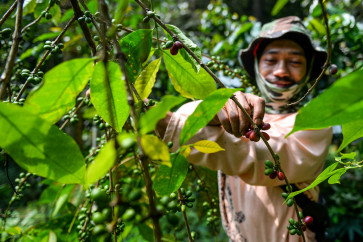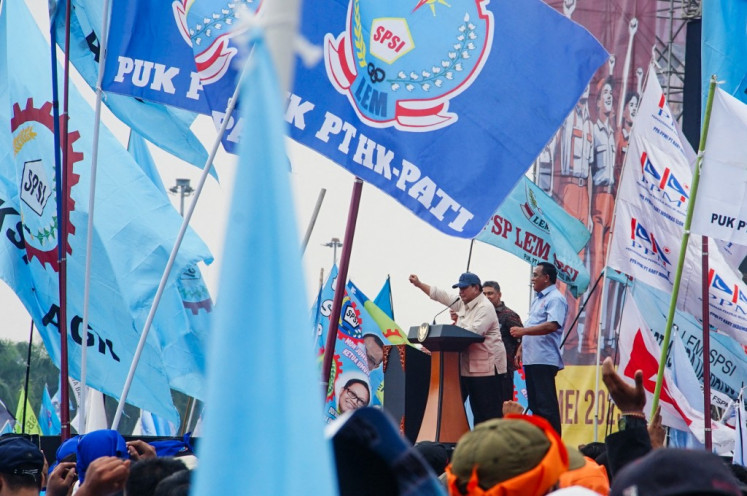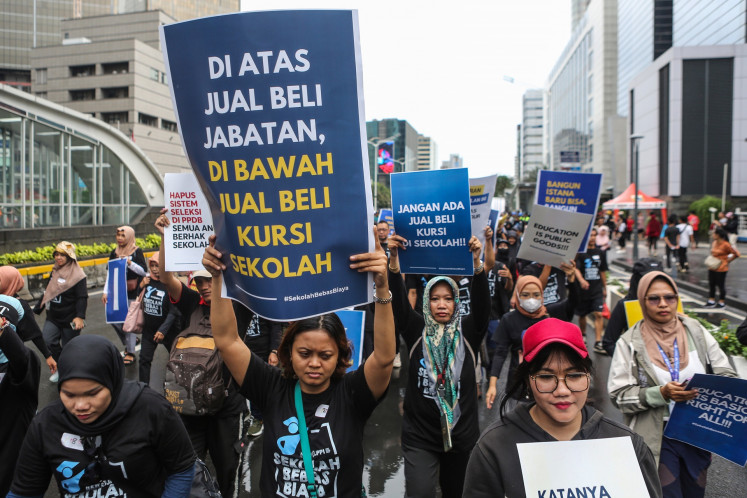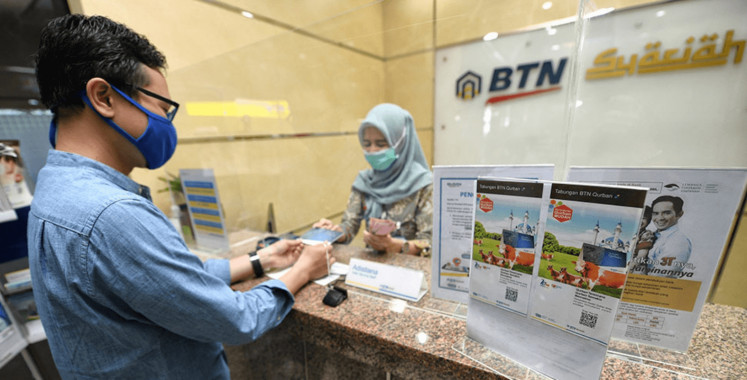Japan unlikely to file complaint on ore-export ban with WTO
Japan is unlikely to move forward with its plan to challenge Indonesiaâs mineral-ore export ban through the World Trade Organization (WTO) as both parties may have reached an agreement on how to solve the issue, officials have said
Change text size
Gift Premium Articles
to Anyone

J
apan is unlikely to move forward with its plan to challenge Indonesia's mineral-ore export ban through the World Trade Organization (WTO) as both parties may have reached an agreement on how to solve the issue, officials have said.
Indonesia, a major exporter of minerals like nickel and bauxite, imposed a ban on the export of ores in mid-January in a move to court investment in local smelters and develop the domestic processing industry.
Trade Ministry special staffer Gusmardi Bustami said Wednesday that Japan might have understood the reasons for the export ban, therefore calling off its previous plan to file a complaint with the global trade governing body.
'So far, there are no more requests from Japan for consultations with us, thereby it should have become clear,' said Gusmardi, who previously led a special team tasked with dealing with Japan's planned formal complaint.
The dispute-settlement process at the WTO is lengthy, taking several years to finish one case.
Japan, home to some of the world's top stainless steel producers, used to obtain more than 44 percent of its annual nickel ore from Indonesia and a halt in shipments has caused serious injury to its domestic industry.
Jakarta has repeatedly requested that Japan relocate its processing facilities to Indonesia with a strong guarantee of a sufficient raw-materials supply. But, until now, no firm has conveyed a plan.
In a meeting with President Joko 'Jokowi' Widodo in August, Japan's Foreign Minister Fumio Kishida raised his concerns on the issue, calling for a review of the ban to pave the way for an easing, while Jokowi expressed his firm standpoint that he would defend the measure as it was mandated by the 2009 Mining Law and the Constitution.
Indonesian Ambassador to Japan Yusron Ihza Mahendra said that chances were slim for Japan to seek a formal settlement at the WTO on the mineral-export prohibition.
'I have discussed the issue with Japan's Prime Minister Shinzo Abe. Insya Allah [God willing], this problem will be addressed through an amicable solution,' he said earlier this week.
Yusron further said that there would be a 'breakthrough' on nickel exports, which would allow the shipment of nickel with the level of processing demanded by the government's regulation. However, he declined to elaborate further.
As of early August, the mineral export ban had effectively attracted 50 planned smelter projects in Southeast Asia's largest economy with investment amounting to $31.4 billion, according to statistics from the Investment Coordinating Board (BKPM).
Data from the Energy and Mineral Resources Ministry reveals that 64 smelters are being built, of which 30 are nickel facilities, mostly by Chinese firms. PT Sulawesi Mining Investment, a joint venture between local firm Bintang Delapan Group and China's Tsingshan Holding Group, for instance, is building a $1.04 billion nickel smelter in Morowali, Central Sulawesi.
Nickel futures have risen 18 percent throughout this year to $16,370 per metric ton, the highest gainer among six base metals traded on the London Metal Exchange, Bloomberg reported.









